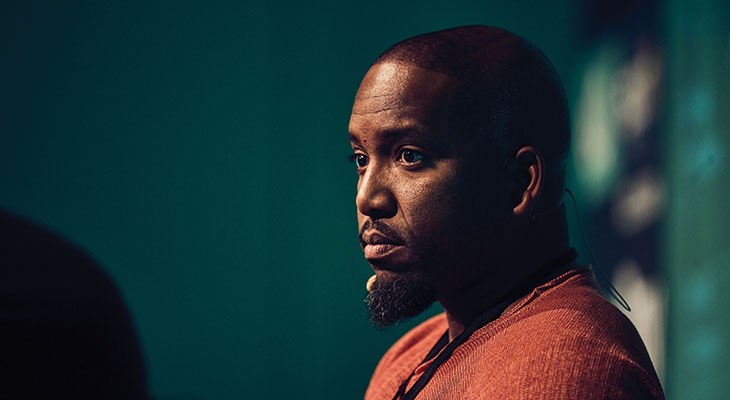Michael Redd sees similarities between team-building in startups and in the NBA.
“It’s really no different than what I did in the NBA, as far as with teams and competing,” he says. “The greater chances of success for a company really hinge on the chemistry of a team.”
Redd, a Columbus-area native and resident, played 11 seasons with the Milwaukee Bucks and won a gold medal in the 2008 Olympics. Since his retirement from the sport, the former Buckeye has become an angel investor and venture partner, investing in more than 85 companies over the past six years.
He knows firsthand the importance of surrounding yourself with great people, and that’s what he looks for with startup CEOs and founders.
“It doesn’t mean that a company will be successful because of that, but the chances are higher,” Redd says.
In fact, he’s often more concerned about the leaders than the product; if the product isn’t right, the company can always pivot. He looks for competitiveness, resiliency and curiosity, and whether people can stay in their lane and delegate. Is that leader willing to not be the smartest person in the room?
“I was a team guy when I played, and I think team is everything, because one person can’t do it by themselves,” he says.
Check your ego
When Redd thinks about early stage businesses that failed — with which he sometimes learns more than with a successful company — it may come down to a lack of focus. A startup might have a product but hedges that by also spending a lot of time on research and development.
Ego is also a big stumbling block; stubbornness and a lack of humility can break down deals and companies, he says.
“I’ve worked with some incredible people that were really creative, but they weren’t CEOs,” Redd says. “I’ve had to have hard conversations with them about their roles.”
One quality he wants in a CEO is coachability, having an open perspective and realizing you might not have it all figured out. The right answer has to win, he says — not your answer, but the right answer.
Redd had to check his own ego when he first got into investing. That lesson hit home with Tony Jansz, who ran The Carlyle Group. The Australian has been a mentor as Redd has learned about the venture and private equity worlds.
“When we first met, he said, ‘Mike, you’re at a junior level,’” Redd says. “I think a lot of times, we, as athletes, have achieved greatness at one level, but it doesn’t necessarily translate into a different space. You have to check your ego at the door, and just because you were senior level in one space doesn’t mean that you’re senior level in this space.”
Gaining experience
Redd started his education with NCT Ventures in Columbus, where he was a general partner for a time.
“I wanted to transition some of the skill sets that I had developed in the NBA into helping build teams and companies,” he says. “I saw a direct correlation between the two and became really fascinated with the whole venture investing world and the nuances of it.”
Later, he joined the venture group Third Wave Digital, based in Los Angeles.
“The perspective of people at Third Wave was that not every company is going to be prosperous,” Redd says. “Hopefully, there are one or two or three unicorns in the fund that will help the fund out.”
HelloGiggles, which was purchased by Time Inc., has been the most memorable exit for Third Wave, but many of the companies Redd has been involved with are still maturing and growing.
“If you’re in venture, what I’ve learned is to be patient, very patient,” he says. “It takes time to see these things mature and grow.”
Redd also likes using his relationships on the coast to connect companies in the Midwest and Columbus, even as he has learned to be more disciplined in what he invests in.
Recently, Redd also joined ADvantage Sports Tech Fund, a global sports tech fund backed by leAD Sports, an initiative spearheaded by the grandchildren of Adi Dassler, the founder of Adidas, and OurCrowd. He will be sourcing deal flow, while also being an ambassador of the fund and capital raising.
As a former athlete who suffered injuries when he played, Redd is excited to be a part of a growing market that aligns with his core values.
“It gives me an opportunity to give back and see athletes become more efficient, proficient with the games and with their bodies,” he says, adding that he wishes he was playing now because of all the data, metrics and science behind athletes today.




